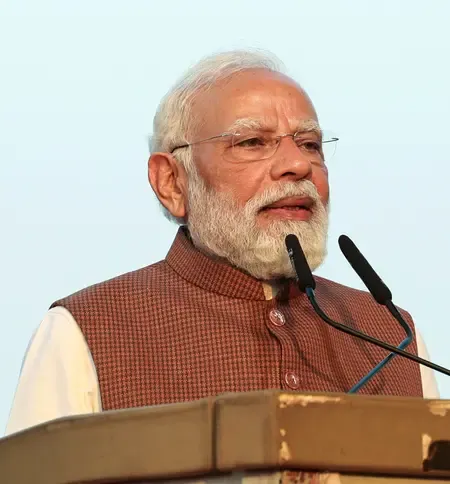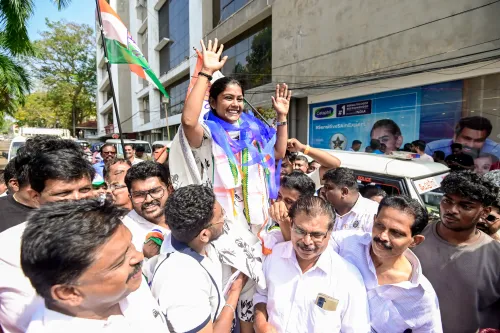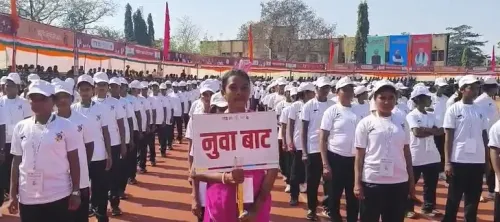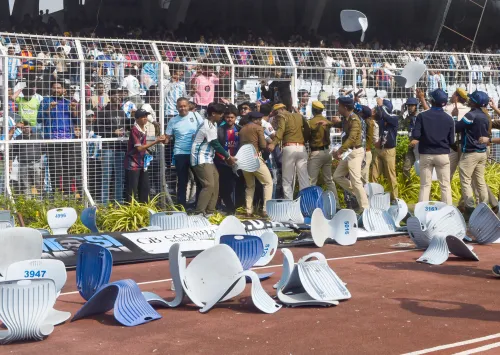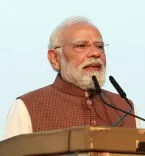Bench Led by CJI Sanjeev Khanna to Review Waqf Amendment Act Challenges on April 16
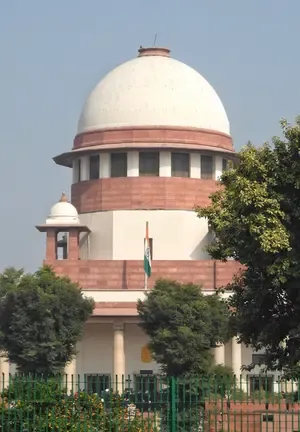
Synopsis
Key Takeaways
- The Supreme Court will review challenges to the Waqf (Amendment) Act, 2025.
- CJI Sanjeev Khanna leads the bench hearing the petitions.
- Hindu Sena supports the amendments, claiming they protect non-Muslim rights.
- Congress plans to contest the Act, labeling it unconstitutional.
- Minority Affairs Minister assures the Act benefits poor Muslims.
New Delhi, April 10 (NationPress) The Supreme Court is set to examine a series of petitions next week that contest the constitutional validity of the Waqf (Amendment) Act, 2025.
According to the cause list available on the apex court's website, a panel led by Chief Justice of India (CJI) Sanjeev Khanna, along with Justices Sanjay Kumar and K.V. Viswanathan, will address this matter on April 16.
Multiple petitions have been submitted to the Supreme Court challenging the legitimacy of the recent changes made to the Waqf Act of 1995.
Recently, Hindu Sena submitted an intervention application in support of the Waqf (Amendment) Act, 2025. The application asserts, “There is no infringement of any rights of members of the Muslim Community. In fact, the previous provisions of the Waqf Act, 1995 have adversely affected the rights and interests of non-Muslim members of society, as indicated by Sections 3 and 40 of the Waqf Act, 1995, which allowed for the appropriation of non-Muslim properties by the Waqf board,” as stated by the National President of Hindu Sena.
The application further claims that the amendments will ensure justice for non-Muslims whose properties have been seized or are being claimed as waqf properties.
Following the passage of the legislation in both Houses of Parliament last week, the Congress party has announced plans to challenge the Waqf (Amendment) Bill (now an Act after receiving Presidential assent) in the Supreme Court, arguing that it represents an assault on the fundamental structure of the Constitution and is intended to “polarize” and “divide” the nation along religious lines. Conversely, the government contends that millions of impoverished Muslims will benefit from this legislation, and it does not harm any individual Muslim.
Minority Affairs Minister Kiren Rijiju has asserted that the legislation does not interfere with Waqf properties, emphasizing that the Modi administration operates with the vision of 'Sabka Saath and Sabka Vikas'.
In a petition submitted to the Supreme Court, Congress MP and party whip in Lok Sabha Mohammad Jawed argued that the amendments contravene Articles 14 (right to equality), 25 (freedom to practice and propagate religion), 26 (freedom of religious denominations to manage their religious affairs), 29 (minority rights), and 300A (right to property) of the Constitution.
Similarly, Asaduddin Owaisi, chief of the All India Majlis-e-Ittehadul Muslimeen (AIMIM), has approached the Supreme Court, asserting that the challenged amendments are “ex facie violative of Articles 14, 15, 21, 25, 26, 29, 30, and 300A of the Constitution of India, and are manifestly arbitrary”.
Numerous others, including the Association for Protection of Civil Rights, AAP leader Amanatullah Khan, Maulana Arshad Madani of Jamiat Ulema-i-Hind, All India Muslim Personal Law Board (AIMPLB), Social Democratic Party of India (SDPI), Indian Union Muslim League, Taiyyab Khan Salmani, and Anjum Kadari, have also filed petitions contesting the constitutional validity of the Waqf (Amendment) Act, 2025.
The term ‘Waqf’ is rooted in Islamic law and traditions, denoting an endowment made by a Muslim for charitable or religious purposes, which may include mosques, schools, hospitals, or other public institutions.


